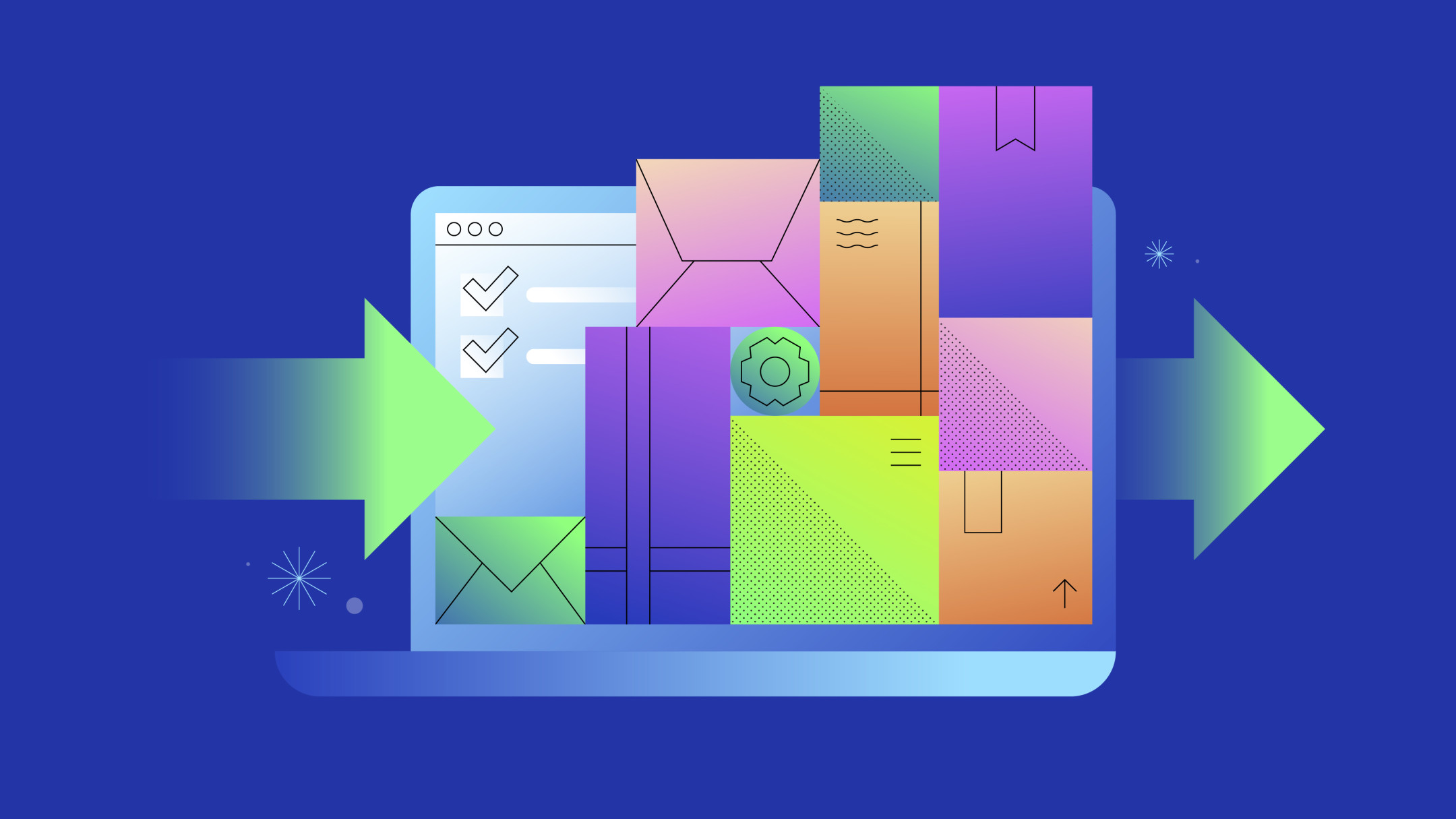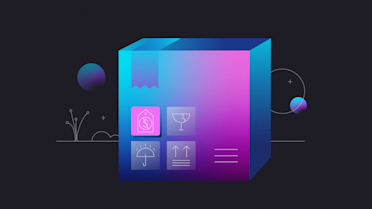Achieving enterprise-level sales volume in your retail business is a remarkable achievement. It shows you’ve increased product sales and developed a reputation as a reliable merchant in your industry. With this comes newfound logistical challenges. As your business scales, you’ll need a robust order management system to efficiently handle incoming products from suppliers and outgoing shipments to customers. For B2B sellers, a smooth order management process is crucial to meeting client expectations.
B2B sellers turn to order management software to handleinventory managementand order fulfillment processes. If you need an order management solution, you want to understand how order management software works and which features to prioritize. Here’s how to choose the best B2B order management platform for your business.
Table of Contents:
- What is B2B order management software?
- Types of B2B order management software
- Key features of B2B order management software
- 5 factors to consider when choosing B2B order management software
- Top 5 B2B order management software
- B2B order management software FAQ
What is B2B order management software?
Business-to-business (B2B) order management software is software designed for managing orders placed between businesses.
Whether you run anonline ecommerce store, sell wholesale, or have a chain ofbrick-and-mortar stores, there’s likely a steady stream ofinventoryflowing in and out of your company. This includes outbound orders leaving your company, and inbound orders arriving from suppliers. B2B order management software helps you track everything, whether navigatingsupply chain complexityor meeting customer expectations.
Types of B2B order management software
B2B order management software takes two forms:
- Traditional order management software (OMS)
- Enterprise resource planning (ERP) software
Here’s how they differ:
1. Traditional order management software (OMS)
Traditional order management software handles logistics directly linked to the sales process, allowing you to accept orders across a full spectrum of sales channels, including online orders from yourecommerce storeand in-person orders from physical locations.
OMS platforms can also manage online sales from third-partyecommerce platforms, such asAlibaba, which connects B2B suppliers and purchasers. Businesses of all sizes can afford traditional order management software, with various price tiers available for different budgets.
2. Enterprise resource planning (ERP) software
Enterprise resource planning (ERP)software integrates with every facet of your business, aggregating data from product design,inventory,customer relationship management (CRM),sales, and marketing.
With ERP software, your sales team can look up how much inventory remains in your warehouses, and your customer service team can find past purchase orders and delivery confirmations. An ERP system transmits data across these departments using a standard electronic format called electronic data interchange (EDI). ERP software can be expensive, and large companies opt for a completeERP电子商务集成.
Key features of B2B order management software
- Order confirmation
- Shipping confirmation
- Order tracking
- Price management
- 供应链管理
Order management software can optimize your B2B inventory and sales process. Here are five features frequently included with order management software platforms.
1. Order confirmation
Order management software can send automatic confirmations to customers after a purchase. These confirmations may include order numbers, estimated shipping costs, and any sales tax due.
2. Shipping confirmation
Order management software can send a shipment notification to a purchaser. It can also inform you, the seller, when your products leave a warehouse (or adropshipper’swarehouse).
3. Order tracking
Order management platforms can fetch shipping data from delivery services like USPS, FedEx, and UPS and display shipping updates on third-party websites. This lets customers track orders from your website rather than an outside site.
4. Price management
Your ecommerce site should display uniform pricing across all pages. For instance, an item should have the same price on a search results page as it does on your product page. Order management software helps ensure price consistency throughout your website, even if prices change.
If you have a wholesaler version of your ecommerce site with wholesale pricing, it can manage this as well. That way pricing remains accurate between clients.
5. Supply chain management
Some order management software can help you track items shipped from suppliers. It provides inventory data and can automate procurement so products are automatically reordered when supplies dip below a specific threshold.
5 factors to consider when choosing B2B order management software
As you research order management software for your B2B sales platforms, you’ll find many options with various prices and features. Streamline your search by focusing on these five key factors:
- Integration with other software
- Ease of use
- Scalability
- Suite of features
- Price
1. Integration with other software
The best order management software easily integrates with your current software tools, including accounting software for financial management and customer relationship management (CRM) software used for managing the diverse customerpersonas.
If you choose enterprise resource planning (ERP) software, you opt for a system that integrates all your software applications and databases. ERP systems can cost hundreds of thousands of dollars, though they can provide cost savings over the lifetime of your business
2. Ease of use
Order management software is only helpful if your team members know how to use it. Your IT department might oversee its initial integration but everyone in your organization must be able to use it. This means sales reps can look up data on repeat customers and warehouse managers can monitor inventory levels. Choose software everyone on your team can learn quickly.
3. Scalability
你的OMS gr规模必须能够作为你的业务ows. When you see a surge in orders, you should be able to manage the influx without needing a new OMS.
Flexibility is essential. If you want to expand from an online-only operation to include physical stores, ideally, you can use the same OMS for your omnichannel business.
4. Suite of features
The features you need from your OMS depend on the nature of your business. If you work withdropshippers, you may only need an OMS to process customer orders. If you ship your own products, you need order management software that handles the logistics behind every purchase order, from shipping to inventory management.
Your business may require higher-level features like differentiated pricing, which shows a range of prices to users based on their customer profile and the time of purchase. You may need to offer wholesale pricing as well as retail. You may require different shipping options, such as USPS for standard delivery and FedEx for same day delivery.
5. Price
Order management software prices vary based on the features, the number of users, and the number of orders it processes each month. Many platforms offer tiered pricing, which allows you to match your software subscription to the size of your business. This software is typically sold on a monthly subscription basis. Consider choosing the most robust software suite you can afford and upgrading over time.
Top 5 B2B order management software
- Shopify
- ShipStation
- Cin7 Orderhive
- QuickBooks Commerce
- Brightpearl
Order management software can enable smoother business operations and help increase customer satisfaction. Here are five B2B order management software options worth considering:
1. Shopify
Shopify is an all-in-one ecommerce solution that can optimize yourB2B ecommerceand business-to-consumer (B2C) order management. Among its many functions, Shopify can power yourcheckout (online and in person), order processing, email confirmations, fulfillment, and follow-up customer service. It offers custom company profiles so each client can have a unique buying experience, with wholesale customer accounts, distinct pricing, payment terms, and discounts.
Shopify integrates with a variety of third-party tools likeaccounting software,email marketing platforms, andinventory managementsystems, some of which can be found in theShopify App Store. You can use Shopify toimport B2B ordersfrom non-Shopify platforms, allowing you to migrate your B2B business to Shopify without losing order data history. It also lets purchasers review their entire order history within their customer account pages on a Shopify storefront.
Shopify pricingstarts at $39 per month, with discounts if you purchase an annual membership.
2. ShipStation
ShipStationlets you manage orders and inventory, create shipping labels, and integrate with outside software platforms, including Shopify. A signature feature is branded shipping, which creates a personalized delivery experience with customized shipping labels, returns portals, and tracking pages. ShipStation prices start at $10 per month. Its most popular plan is $100 monthly and includes 2,000 shipments per billing period.
3. Cin7 Orderhive
Cin7 Orderhiveis a multichannel order and inventory management system. Its features include inventory and warehouse management, retail operations and point-of-sale (POS) services, invoicing, payments, and shipping logistics. Itspricing tiersstart at $325 per month and can accommodate from a simple B2C ecommerce operation up to a multinational distribution service.
4. QuickBooks Commerce
QuickBooks Commerce, formerly known as TradeGecko, is an OMS solution that directly integrates with QuickBooks’ accounting software. Its features include order management and fulfillment, shipping, wholesale, inventory optimization, warehouse management, purchase order management, and multichannel sales reports. Plans start at $30 per month, with the most popular monthly plan costing $85.
5. Brightpearl
Brightpearlby Sage is a retail operating system. It includes the signature features of B2B order management software, including inventory and order management, shipping and fulfillment, warehouse management, and CRM tools. It integrates with many third-party sales platforms, including Shopify, and offers customer service to help you get maximum value from your subscription. Contact Brightpearl for a price quote.
Expand into the B2B market with Shopify Plus
Grow and run your wholesale business on Shopify Plus with tools optimized for flexibility and customization, for all your buyers.
B2B order management software FAQ
What is the difference between CRM and order management?
CRM stands for customer relationship management. CRM software focuses on relationships with existing and potential customers, tracking everything from demographic data to order history. Order management software specifically addresses the logistics surrounding purchase orders.
Can B2B order management software integrate with existing ERP and CRM systems?
Yes, the best B2B order management software can integrate with many other software platforms, including ERP and CRM systems.
How secure is B2B order management software in terms of data protection and privacy?
Most B2B order management software platforms have multiple levels of data protection, including encrypted servers and two-factor authentication upon login. Train your teams in best practices for customer privacy and data management.
Is B2B order management software scalable to accommodate business growth?
Yes, nearly all B2B order management platforms are scalable and allow you to upgrade to higher tiers as your company reaches enterprise-level sales volumes.






